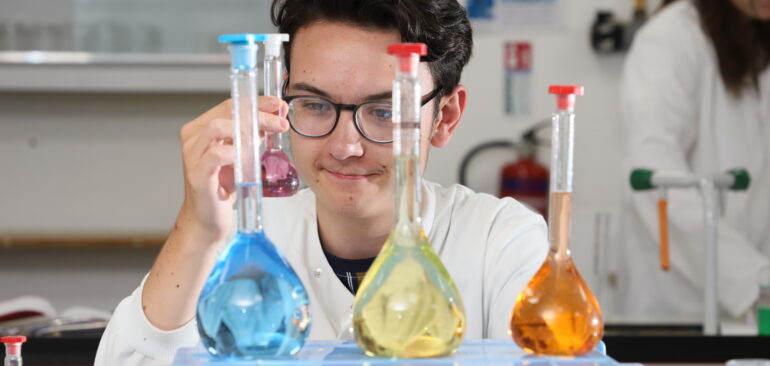A Level Geology
Volcanoes erupt, Earth's plates shift, welcome to the only course at Runshaw which is 4 billion years in the making. Geology is an exciting and vibrant subject with appeal to Science-based and Physical Geography students. It is a diverse and interesting subject with a mixture of applied, practical and theoretical work, delving into the structure, evolution and dynamics of the Earth. We examine the vastness of geological time and the record of life on Earth, together with the impact Geology has on our own lives through the exploitation of its mineral and energy resources.
- Course Information
- Course Code
- LAGEOLO
- Exam Board
- WJEC
- Attendance Pattern
- Daytime
- Course Level
- Level 3
- Study Mode
- Full Time
- Course Location
- Langdale Road, Leyland
- Age Group
- School Leavers (16-18)
- Course Duration
- 2 years
- Overview
Geology is an exciting subject with appeal to Physical Geography and Science-based students. On average, only medical and dentistry graduates earn more than geologists and students go on to study subjects such as Geology, Earth Science, Environmental Science, Geophysics and Geochemistry.
The course outlines the history, evolution, practicality and beauty of our planet. It will give you the opportunity to take part in enjoyable and relevant fieldwork as you are taught by experienced teaching staff in a friendly and supportive environment.
Due to Geology’s scientific nature, we advise that you take at least one other science subject as part of your study programme.
You will study the following exciting topics over the course of two years:
- plate tectonics, earthquakes and volcanoes
- rock processes and products
- environmental, economic and engineering geology
- the evolution of life, oceans and the atmosphere
Course Highlights:
Trips abroad, university workshops and guest lectures from industry experts.
- Entry Requirements
A minimum of 5x Grade 5s, including Grade 6 in Maths as well as Grade 6 in Science OR Geology.
- How will I be assessed?
Written examination 80%, coursework and practical work 20%.
- Progression Pathway
Students go on to study subjects such as Geology, Earth Science, Environmental Science, Geophysics and Geochemistry. Other degrees such as Civil Engineering, Oceanography and Archaeology also have a geological component. Careers in mineral exploration and mining, hydrology, hazard prediction and management, metallurgy and industrial chemistry, mapping and surveying, engineering and the energy industry are open to geologists.
On average, only medical and dentistry graduates earn more than geologists.
- National Careers Service
For guidance about what careers subjects can lead on to please follow this link to the National Careers Service.




